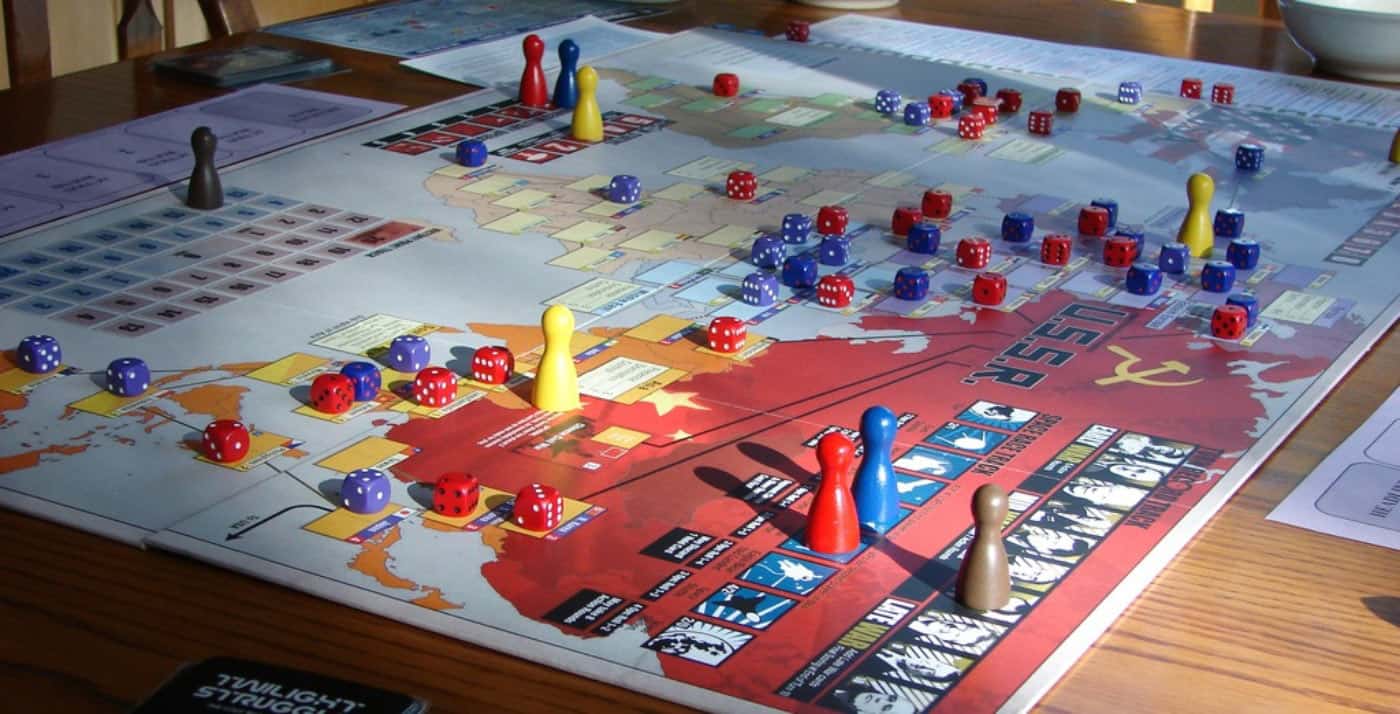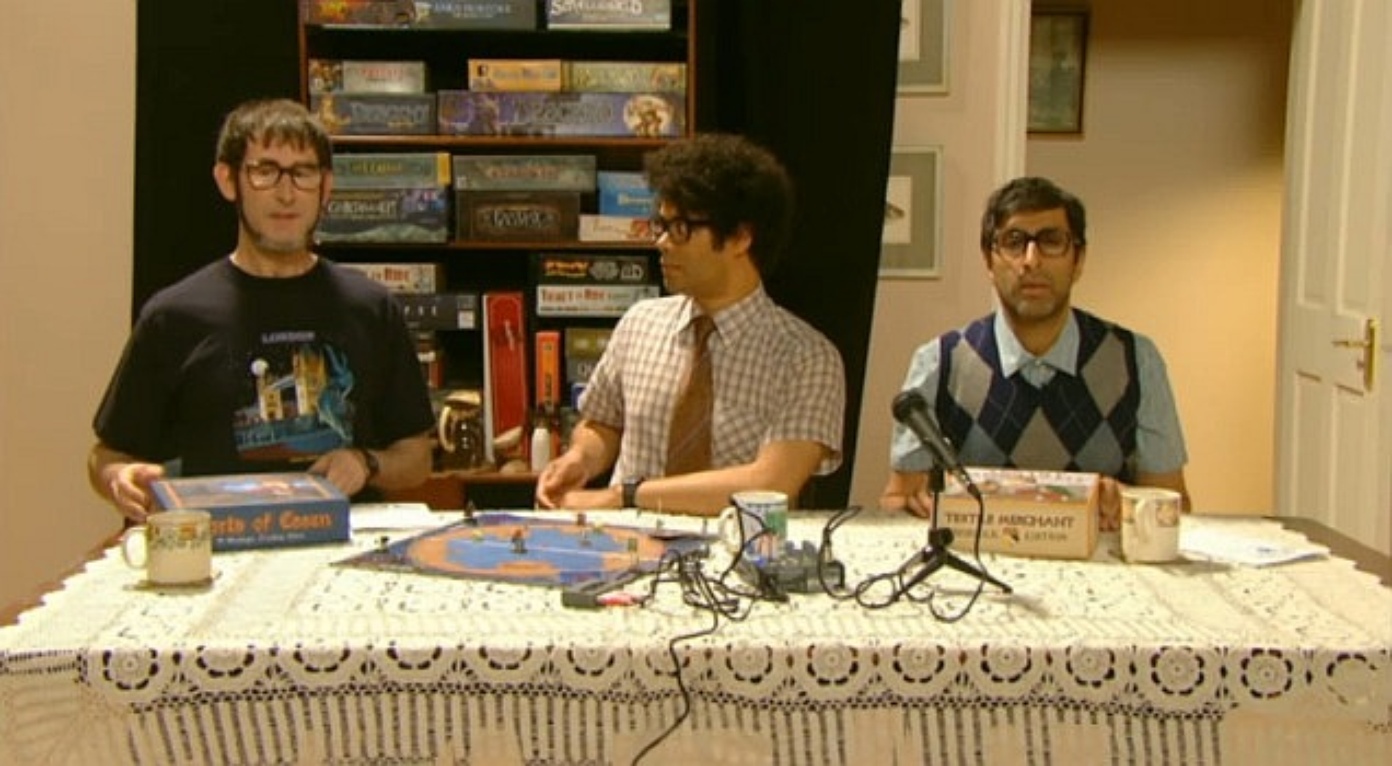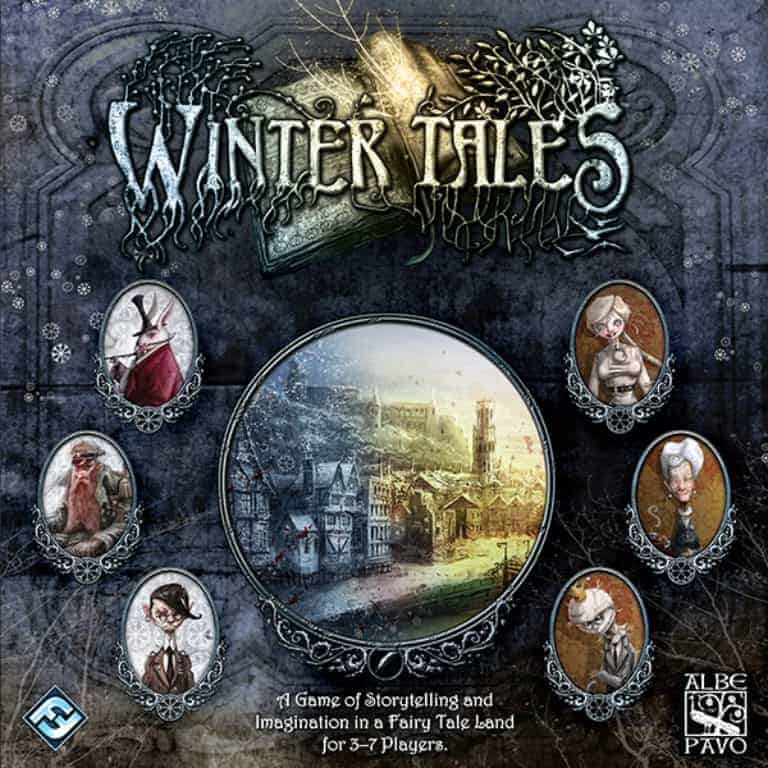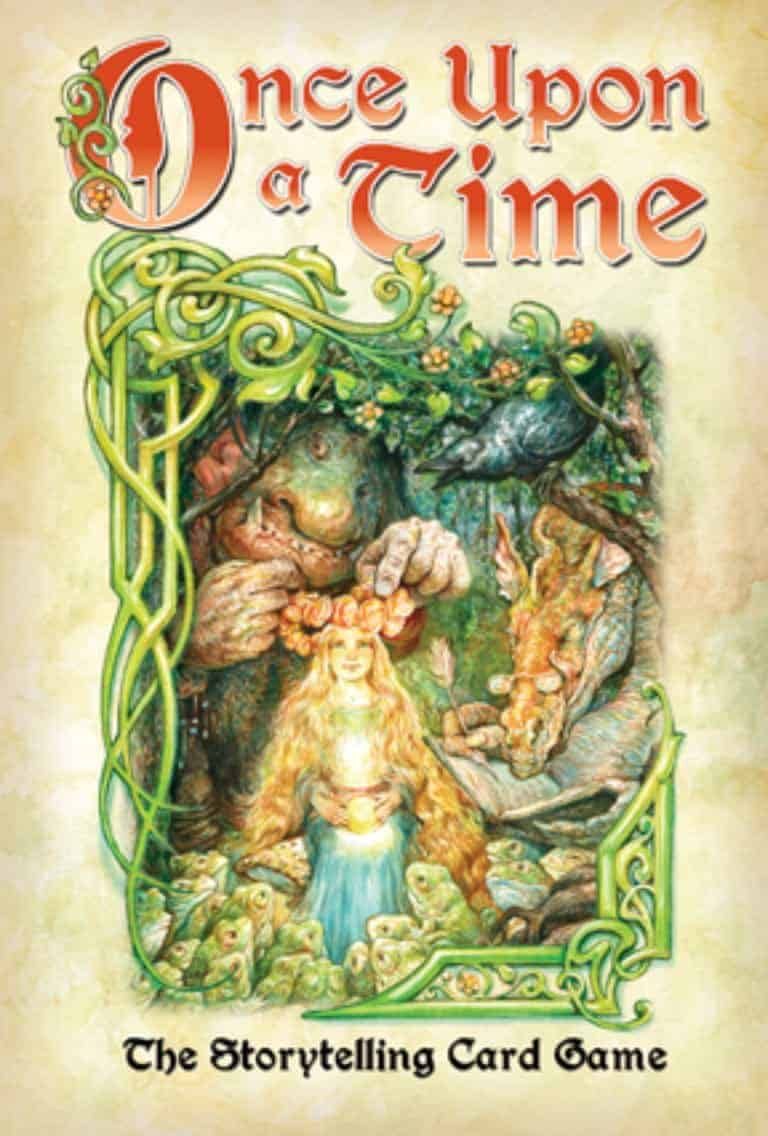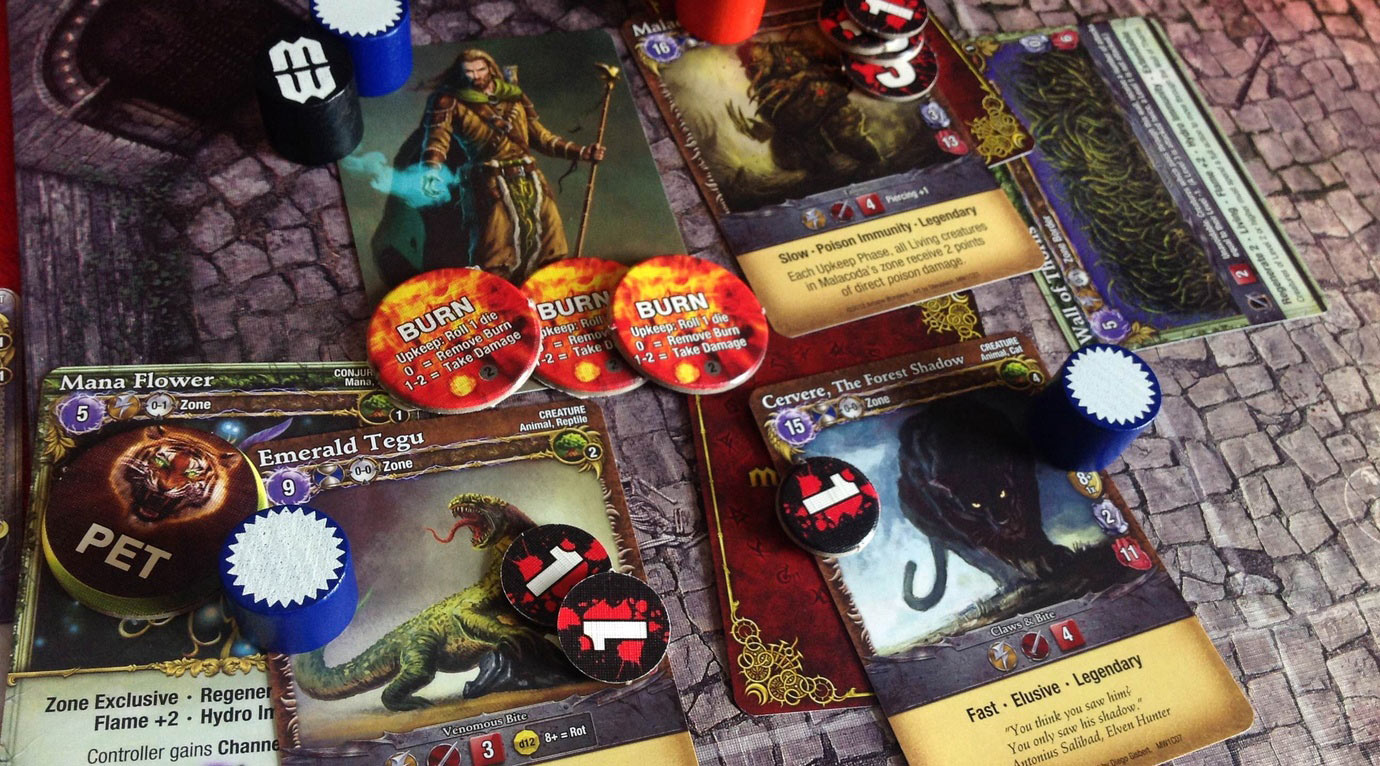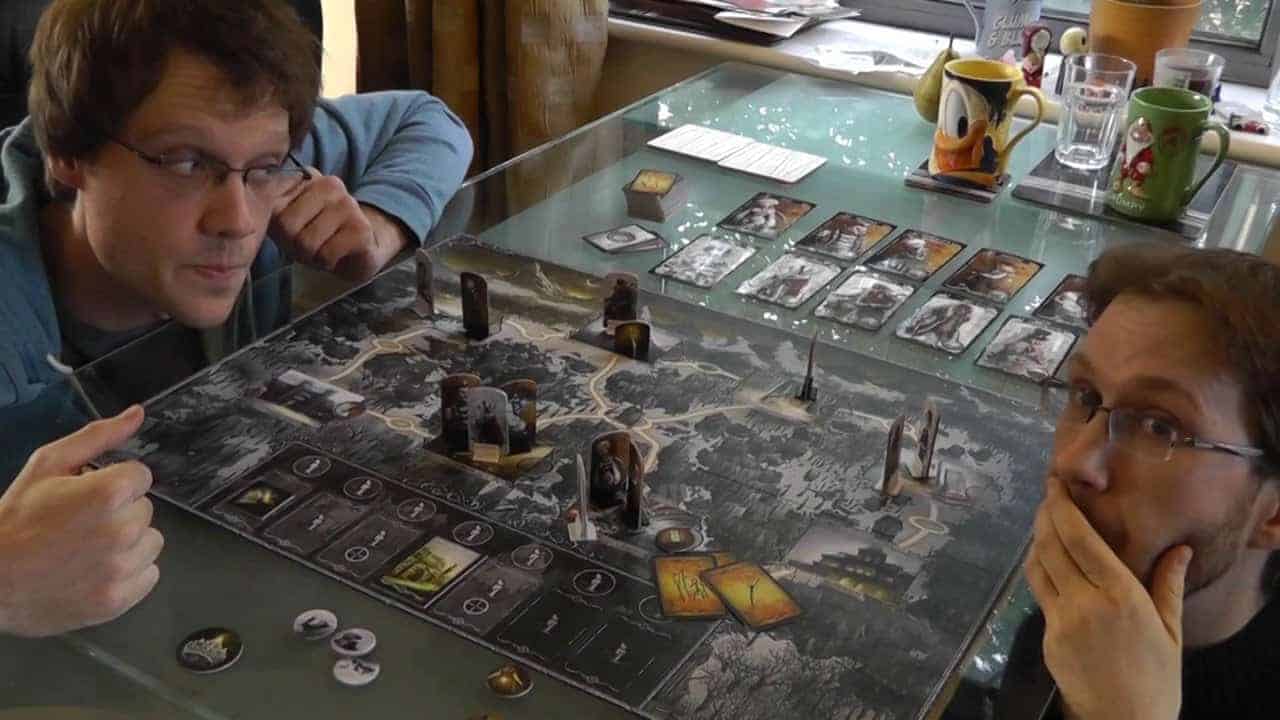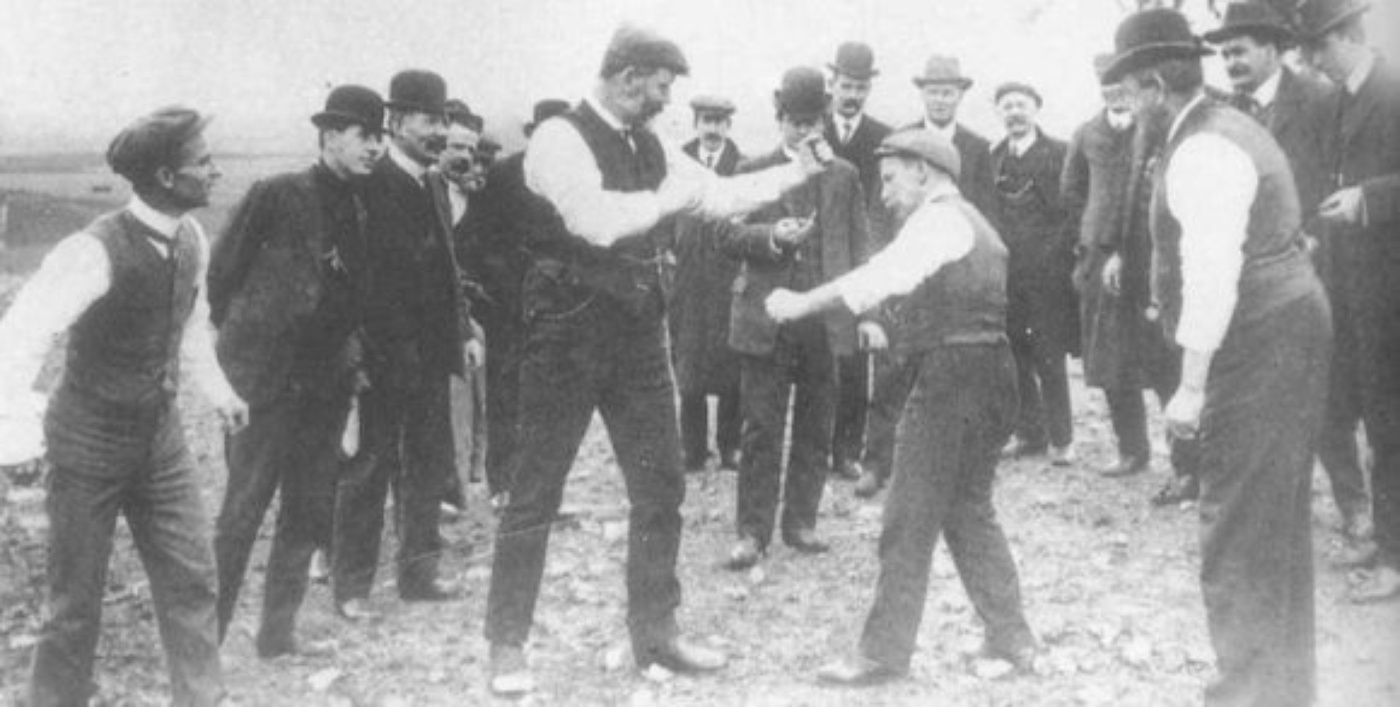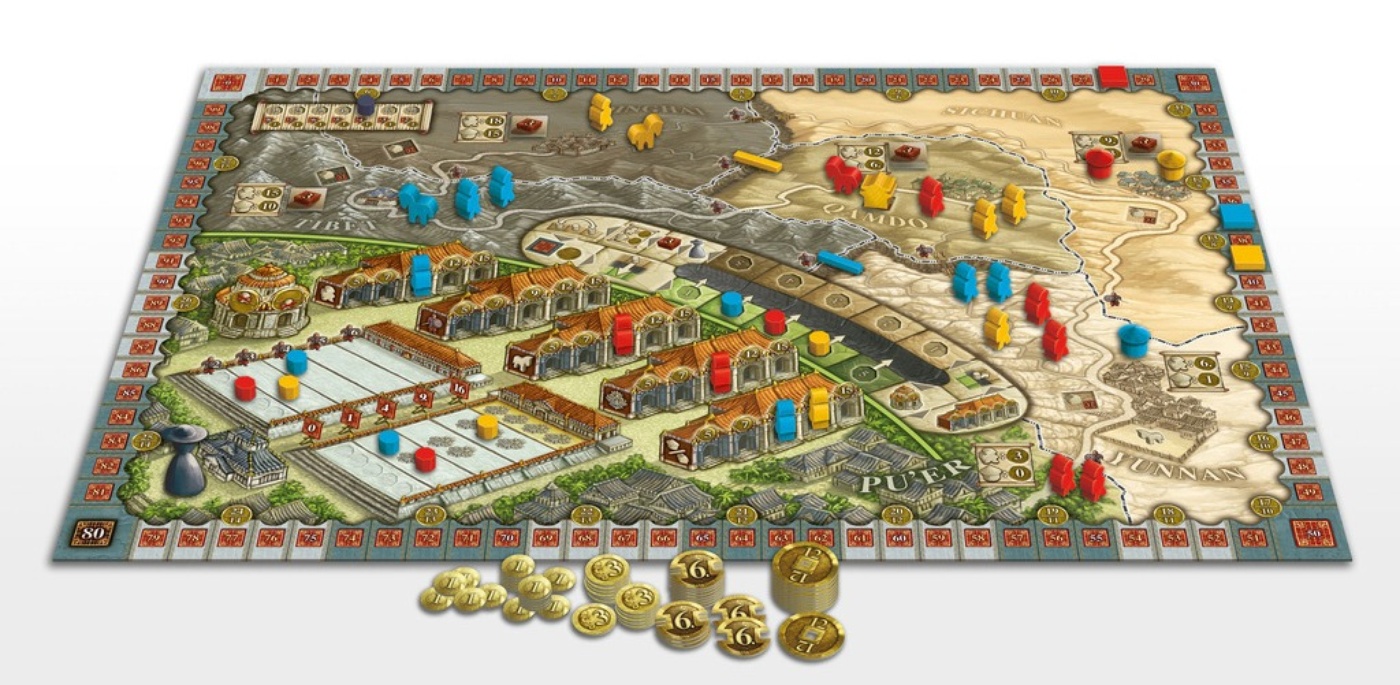Review: Twilight Struggle
[Last month saw an argument between Quinns and Matt Thrower, our resident wargamer, over Here I Stand, a game of reformation-era revolution. It might be the nerdiest thing we’ve ever published. This month, we present the debate’s thrilling conclusion! All images in this article are courtesy of BoardGameGeek.]
Quinns: Matt, slow down! I’d never have guessed that a militaristic, paranoid, survivalist maniac would have a house riddled with secret passageways!
Thrower: Don’t forget the booby traps. Have you been treading where I tread?
Quinns: What?
Thrower: Ah, here we are! The heart of my house.
Quinns: It looks like a panic room. Except with a map of the world and… a big, red button?
Thrower: Naturally! It’s a room dedicated to my favourite game. Doesn’t every gamer have one? In my case, the game is Twilight Struggle, a card-driven recreation of the cold war and nuclear Armageddon. And, much as I hate to stand with the mainstream, it’s not just me that feels that way. It’s currently the number one ranked game on the global graveyard of game statistics, BoardGameGeek.
Read More
